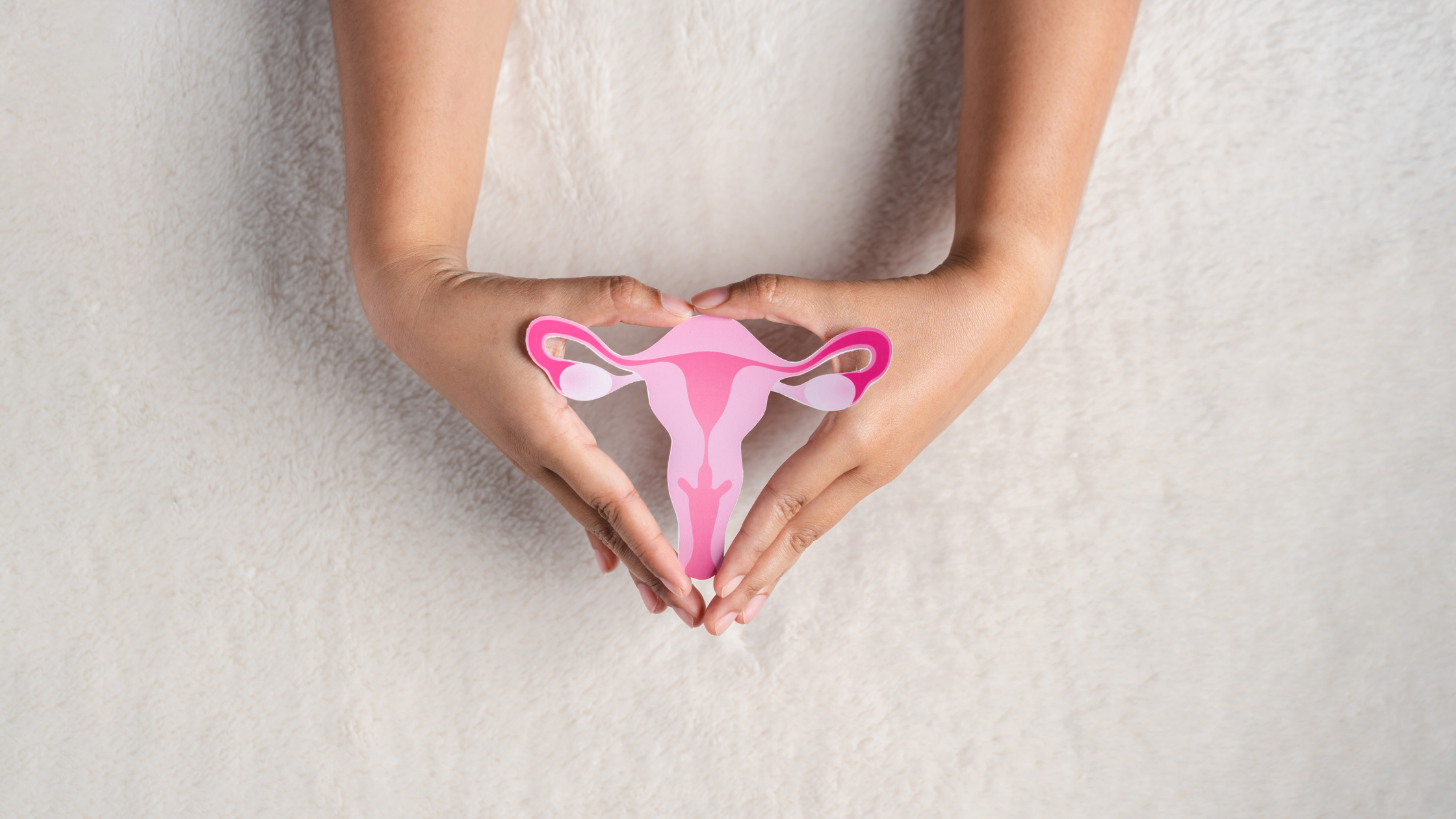
Blurb: Menopause is a natural biological process that occurs in women as they reach middle age and marks the end of their reproductive years. One common concern among women going through menopause is weight gain. The hormonal changes that accompany menopause can contribute to an increase in body weight, especially around the abdomen. Understanding how menopause causes weight gain can help women navigate this stage of life with greater awareness and make informed choices to manage their weight effectively.
Introduction:
Menopause marks a significant milestone in a woman’s life, signalling the end of her reproductive years. While the cessation of menstrual cycles is a natural process, it is often accompanied by a range of physical and emotional changes. One of the most widely discussed concerns is weight gain during menopause.
Is menopausal weight gain truly inevitable? Studies have observed that changing body compositions are often observed in women going through menopause, but is that always the case?
The answer isn’t clear cut, and In this article, we delve into the intricacies of menopause, explore its common symptoms, uncover the reasons behind menopausal weight gain, and provide empowering tips to help women maintain a healthy weight and embrace this new chapter with confidence and grace.

I. Understanding Menopause
Menopause refers to the natural biological process that occurs in women typically between the ages of 45 and 55, marking the end of fertility, although you should do a fertility test to be certain. During this phase, the ovaries gradually reduce the production of reproductive hormones, primarily ooestrogen and progesterone. Menopause is officially confirmed when a woman has gone without menstruation for 12 consecutive months. While menopause is a normal part of a woman’s life, its arrival often brings about various physical and emotional changes.
II. Common Symptoms of Menopause
Menopause presents itself uniquely in each woman, with a combination of symptoms that can differ widely. Here are four of the most common symptoms associated with menopause, including weight gain, and how they can affect your journey:
1. Hot Flashes: These are sudden waves of intense heat, leading to sweating, flushing, and an increased heart rate. While not directly linked to weight gain, the discomfort caused by hot flashes can indirectly impact your lifestyle choices. Sleep disturbances and increased stress may contribute to weight gain during menopause.
2. Mood Swings: Hormonal fluctuations during menopause can lead to mood swings, irritability, and feelings of anxiety or depression. These emotional imbalances can influence eating habits and potentially contribute to weight gain.
3. Sleep Disturbances: Many women experience disruptions in their sleep patterns during menopause. Insufficient sleep and bad sleep habits has been associated with weight gain and can disrupt the body’s metabolism and appetite regulation.
4. Weight Gain: It’s unclear if menopause is the direct cause of weight gain in this case, but during the menopausal transition, a study that touches on obesity has documented an average 1 pound increase every year. Hormonal changes, coupled with the natural decline in muscle mass and metabolic rate, can contribute to weight gain and a shift in body composition.

III. Unravelling the Connection between Menopause and Weight Gain
It makes sense for age to be a contributing factor to weight gain – declining metabolism and lower caloric needs mean that what was once considered normal portions of food is now too much for your everyday caloric expenditure. This ultimately leads to weight gain.
However, it gets even more complicated for women going through menopause. Weight gain during menopause can be attributed to a combination of factors, including hormonal changes, the aforementioned age-related metabolic decline, and lifestyle factors. Here’s a closer look at how menopause specifically affects weight:
1. Hormonal Changes: During menopause, there is a significant decline in the production of oestrogen and progesterone, two key hormones involved in regulating various bodily processes, including metabolism. Oestrogen plays a role in maintaining body fat distribution, favouring storage in the hips and thighs. With lower oestrogen levels, fat tends to redistribute and accumulate around the abdomen, leading to an increase in waist circumference and overall weight gain.
2. Metabolic Changes: The hormonal fluctuations during menopause can influence metabolic rate and how the body utilises calories on top of age-related metabolic decline. As oestrogen levels decline, there is a decrease in the metabolic rate, which means the body burns fewer calories at rest. This can make it easier to gain weight if calorie intake remains the same. Additionally, the loss of muscle mass that often accompanies ageing and menopause can further slow down metabolism, contributing to weight gain.
3. Lifestyle Factors: Menopause often coincides with other lifestyle changes that can contribute to weight gain. As women age, they may become less physically active or experience changes in their activity levels. Reduced physical activity can result in fewer calories burned, making weight management more challenging. Moreover, some women may experience an increase in appetite or cravings during menopause. Especially for those with difficulty controlling their appetite, this could lead to overeating or indulging in calorie-dense foods, which can contribute to weight gain.
4. Psychological Factors: Your body’s changing. Again. It’s only natural that being thrown into these changes can stress you out, which only contributes to weight gain. Some women may experience mood swings or changes in sleep patterns, which can influence eating behaviours. Emotional eating or turning to food for comfort can lead to weight gain if not managed effectively.
IV. Tips to Maintain a Healthy Weight during Menopause
While weight gain during menopause is common, it is not inevitable. By adopting healthy lifestyle habits, you can effectively manage your weight during this stage of life:
1. Balanced Diet: Focus on a well-balanced diet that includes a variety of nutrient-dense foods. Emphasize whole grains, lean proteins, fruits, vegetables, and healthy fats, while limiting processed foods, sugary snacks, and beverages. Pay attention to portion sizes and aim for regular, balanced meals.
2. Regular Exercise: Engaging in regular physical activity can help offset the metabolic changes associated with menopause. Incorporate a combination of cardiovascular exercises, strength training, and flexibility exercises into your routine. Consistent exercise can help maintain muscle mass, boost metabolism, burn calories, and improve overall body composition.
3. Stress Management: Effectively managing stress is crucial during menopause. Explore stress management techniques such as mindfulness, relaxation exercises, meditation, or engaging in activities that bring joy and relaxation. By managing stress, you can reduce the likelihood of emotional eating or turning to food for comfort.
4. Hormone Replacement Therapy (HRT): In certain cases, hormone replacement therapy may be recommended to alleviate menopausal symptoms, including weight gain. HRT involves supplementing the declining hormones, particularly oestrogen, to help rebalance hormone levels. However, the decision to undergo HRT should be made in consultation with a healthcare professional, taking into consideration individual health history and potential risks and benefits to see if this solution is for you.
Moving Forward With Confidence
It’s hard to deny that menopause has a hand in weight gain. However, you can still take your health into your own hands, even through this potentially difficult period. Some elements are out of your control, but you can always decide to be persistent in creating and maintaining a healthy lifestyle – a balanced diet, regular exercise, effective stress management, and seeking appropriate medical guidance can help you effectively navigate this transitional phase with confidence and maintain overall well-being.
Remember, your journey through menopause is unique, and understanding your body and health is essential. Consider utilizing CircleDNA, the world’s most comprehensive DNA test, for a more personalized approach. CircleDNA analyzes your genes, providing insights into various aspects of your health, including metabolism, nutrition, and exercise response. Armed with this knowledge, you can make informed decisions to optimize your well-being during menopause and beyond, embracing your journey with empowerment.





